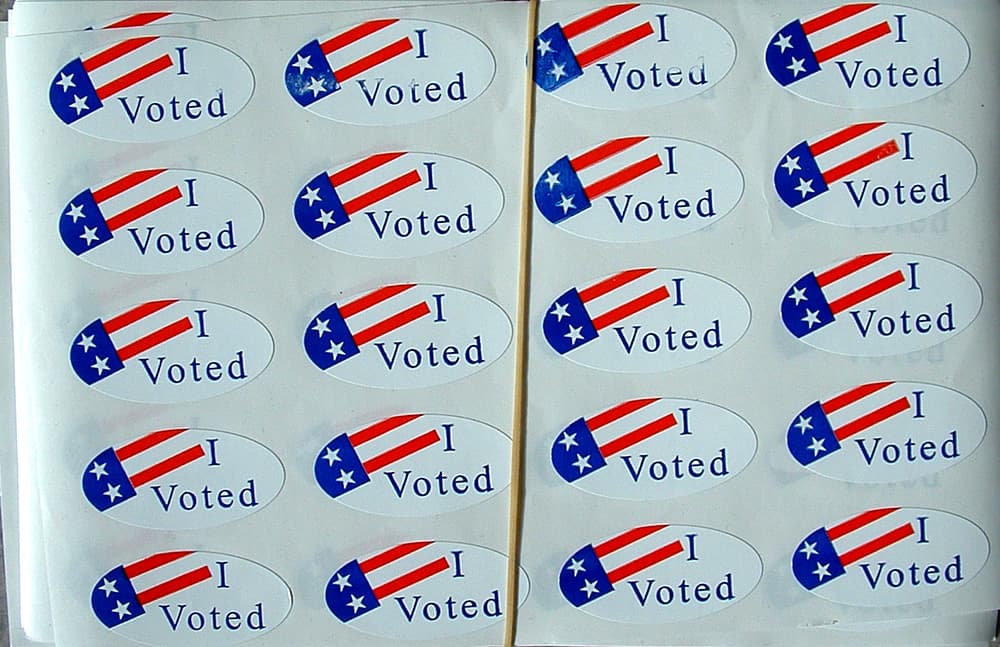
Members of Let Colorado Vote turned in 155,000 signatures Monday for each of two constitutional amendments. If they're approved this November, they would require a presidential primary rather than a caucus and open the primary process to unaffiliated voters.
There's been a lot of pressure this year to move to a presidential primary. The Republicans canceled their caucus and chose delegates at the state convention. Democrats saw their caucuses overwhelmed with new participants in some locations, but total voter participation in these time-consuming olde-timey political rituals is pretty dismal.
But efforts to return to a presidential primary -- which Colorado last held in 2000 -- failed in the legislature over disagreements on how unaffiliated voters should be treated. They can't participate in party caucuses, and plenty of active party members don't want them to participate in primaries either.
One of the ballot measures would require Colorado to hold a presidential primary instead of a caucus at some point before the third Tuesday in March and would allow unaffiliated voters to participate in those primaries
The second ballot measure would allow unaffiliated voters to vote in primaries for other offices (these were the elections held in June for offices like senator, state rep and district attorney). It wouldn't change how candidates for state and local offices get on the ballot, but voters wouldn't have to express a party preference to vote in the primary.
In both instances, a voter would have to choose whether to vote in the Democratic or Republican primary and would not be able to vote in both.
The measures have the backing of a lot of business groups, including the Denver Metro Chamber of Commerce.
In a press release, Kelly Brough, vice chairman of Let Colorado Vote and president and CEO of the Denver Metro Chamber, said bringing unaffiliated voters into the process is fair and will encourage lawmakers to focus more on solutions: "Voters understand that these measures are fair, that they will align Colorado with the majority of states, and that they can encourage lawmakers to pursue solutions instead of partisanship."
The idea is that legislators will worry less about a primary attack from the left or right of their own party if presumably more moderate unaffiliated voters can participate.
This depends on a few assumptions, like that unaffiliated voters are more moderate (as opposed to more extreme) than party members, and that they'll participate in primaries at high enough rates to make a difference.
Unaffiliated voters make up about 40 percent of registered voters in Colorado. That makes them the single largest voting bloc and contributes to our swing state status.
And of course, their votes will count just as much as those of party members when deciding whether they should have a say the next time we're choosing a presidential candidate or a state house rep.












